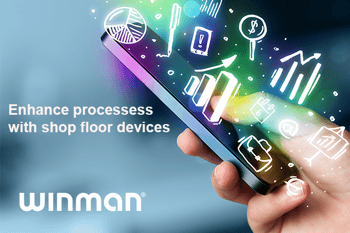 Perhaps you are one of those wondering how enterprise resource planning (ERP) software differs from standalone business applications. Well, you are not alone. Most businesses are confronted with the choice of either implementing ERP software or simply deploying a traditional standalone application. However, when you have sufficient information, making such decisions should not pose any challenges. So how does ERP software differ from standalone business applications?
Perhaps you are one of those wondering how enterprise resource planning (ERP) software differs from standalone business applications. Well, you are not alone. Most businesses are confronted with the choice of either implementing ERP software or simply deploying a traditional standalone application. However, when you have sufficient information, making such decisions should not pose any challenges. So how does ERP software differ from standalone business applications?
For starters, ERP software is basically a business management system with various integrated comprehensive systems that can be used to manage and integrate all business functions within the organisation. On the other hand, standalone business applications refer to applications designed for specific customer needs but have limited functionality and are isolated from other applications.
Ease of Integration
ERP software connects every department together providing a flow of information from areas such as accounts, CRM human resources, sales and distribution, marketing, manufacturing and more. A standalone business application is limited to a specific functional area, say if it is an accounting function, the application does not seamlessly integrate with other functional areas. The main differences between ERP software and standalone business applications are in functionality and characteristics. Unlike standalone business applications, Enterprise resource planning software not only addresses the current needs of the business but also offers continuous opportunities for refining and improving the business processes.
Flexibility
In today's business environment, the need to remain competitive cannot be overemphasised. Therefore, most businesses deploy ERP software to enhance coordination among various departments within the same company over multiple locations, as well as business partners. Due to their inflexibility, standalone business applications are not able to go beyond the specific entities in which they are used. In addition, ERP software can be centrally managed and necessary restrictions imposed to ensure security within the entire business without interference.
Cost-effectiveness
If a business would prefer to deploy standalone business applications, it's worth noting that they tend to be very costly, especially when you have several entities that need separate applications to facilitate their operations. they each require licences and maintenance. An All In One ERP system is cost-effective since the software is non-modular the business will have access to all the modules that are appropriate to them, and in case of future growth, the system is there to grow with them.
Successful implementation of an ERP system requires proper planning from management due to the human and financial resources required. On the other hand, the implementation of a standalone application might only require the attention of a specific department. The critical success factors of ERP software deployment include support from the top management, project management, careful selection of appropriate ERP software packages, user training, as well as business process reviewing.
Ease of Communication
ERP software facilitates the integration of all departments thus making it easy for everyone to share information and communicate with each other. For instance, a report generated by the procurement department can easily be shared with the finance office and any other relevant department. Most ERP systems come with enhanced communication facilities to enable ease of communication. On the other hand, a standalone business application does not support communication with other departments or systems and in case a report is generated, it cannot be shared unless it is printed or emailed.
Therefore, if you are wondering whether to deploy an ERP software or a standalone business application, you need to make serious considerations focusing on the entire business. You need to consider various factors such as whether the software supports growth, whether it is flexible and able to accommodate every department and cost-effective. Does the software/ application support communication within the organisation and with your business partners? In addition, when you consider these factors among others you will be able to clearly choose the most appropriate software or application for your business.
If you would like to learn more about WinMan ERP contact us for a tailored demonstration



.png?width=120&height=120&name=MicrosoftTeams-image%20(4).png)


